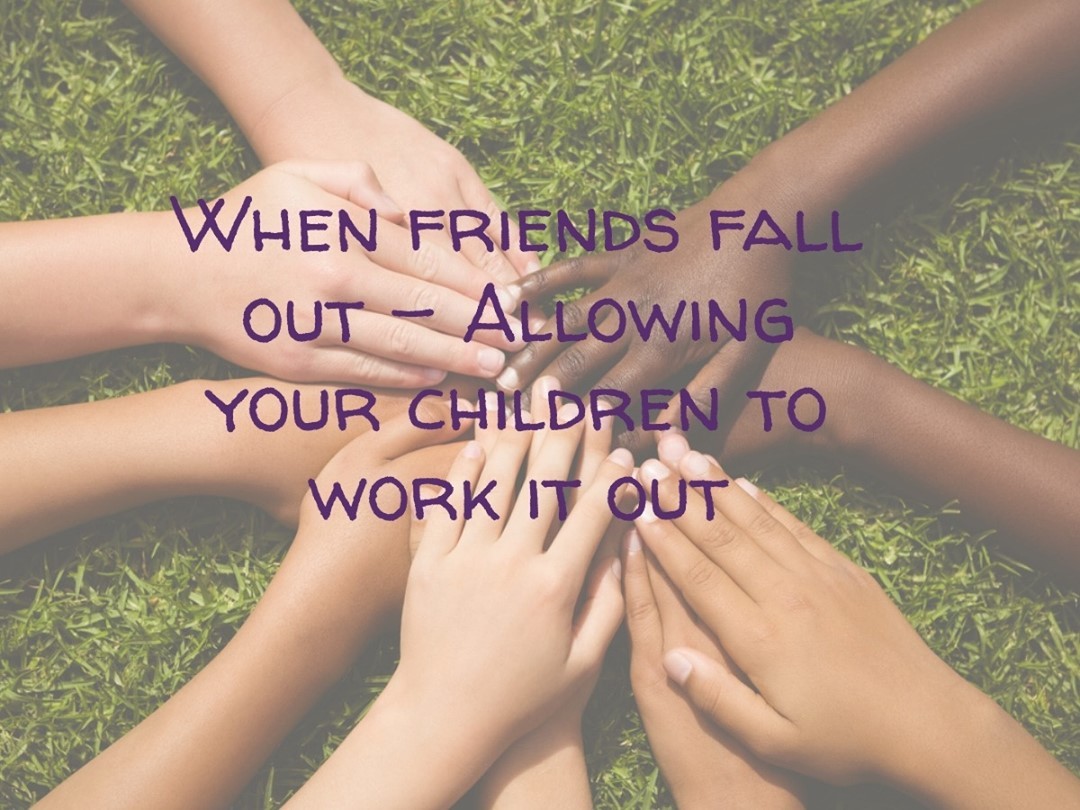When friends fall out – Allowing your children to work it out
No one likes seeing their child upset. You’re only as happy as your unhappiest child, as they say. So when our children fall out with friends it’s hard not to get involved. But should we?
I still remember that feeling of being the one that was left out. For the most part it’s an occasional thing, but when it did happen, the thing about it that stung the most was being caught completely unawares. Because if a friendship fallout comes out of the blue, it usually means you don’t know what you did wrong. And if you don’t know what you did wrong, you’ve got no way of fixing it. So you’re stuck in a helpless place with no control over you fate. Because these people are your whole world.
Of course, we know as adults that these things are not nearly as dramatic as we think they are when we’re young. The other thing I realised, looking back, you don’t need to be joined at the hip with your friends. It is ok for them to hang out with other people. There is no “ownership” of each other. There is the phrase “BFF” or “best friends forever,” and that is what we hope for. But the reality is, “we are attracted to, and connect with people during particular time in our lives,” says Dena M. DiNardo, Psy.D., a marriage and family therapist. “If we're doing our best to live consciously and to grow, we have to recognize that that means we might not always grow alongside someone or in the same direction as someone…..What originally brought us together isn't necessarily the thing that will hold us together.”
Try telling that to a tween though!
It can break your heart to see your child feeling abandoned. And trying to convince them that the shifting alliances of youth are not important in the big scheme of things is going to do nothing to console them. So it’s a natural reaction for us to want to go into fix-it mode. Let’s grab the superglue and solve this now! But, I caution any parent from interfering, much less picking up the phone to a parent of any other child involved to try to smooth things over.
So long as bullying is not at play here, so long as there is no ringmaster manipulating other children into believing the worst about your child, so long as we’re just talking about a shift in preferences for who another child wants to spend time with, then this is one that your child needs to work out on their own. Obviously, you should be there to listen and comfort. But giving your child the time and space to work out how they feel is extremely valuable.
Losing the safety of what we thought of as unquestionable, assured friendship is probably the first time in our life that we realise who we are and what we want is not at the centre of everything. Sure, we get a taste of this idea by arguing with siblings, but a friend is someone we chose. And if our chosen person does not choose us, there is some processing to do. I suggest you let them go through that and come out the other end. Chances are, they will be stronger for it.
